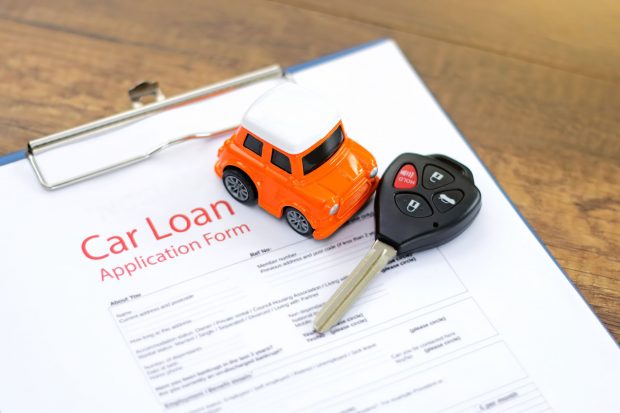
Car finance is the most popular way to buy a car in the UK, and with low monthly payments and other perks, it’s easy to see why.
Hire purchase, personal contract plan (PCP), and personal loans are all terms bandied about when you look into a loan, but how do you know which one is best for you and your circumstances?
With lenders, supermarkets and dealers all offering various finance deals, we’ve broken down what each of the main types of car finance means, so you can get a taste of what to expect from each one. Read on to find out more:
Personal Contract Purchase (PCP)
Great for people looking for a flexible car finance deal.
Personal contract purchase (PCP) is by far the most popular way to finance a car in the UK. Like most other finance options, you put down a minimum 10% deposit followed by low monthly payments.
But here’s the most significant difference: where a conventional hire purchase loan divides the total amount you borrow into equal monthly payments (typically paid off over three to four years), PCP involves even smaller monthly payments, followed by a larger payment at the end of your agreement.
Technically you are hiring the car, but at the end of your contract, you have three options to choose from:
- You pay off a final lump sum or “balloon payment” which is the minimum guaranteed future value (MGFV)
- Hand the car back, no strings attached
- Or you can use the difference between the final payment and its “true” market value as as a deposit for a new car
PCP is the best option for you if you like to keep your options open.
Hire Purchase (HP)
A budget friendlier way to eventually own a car outright.
One of the biggest perks of a hire purchase agreement is that the loan is secured against the vehicle itself. Once you’ve made the final payment, the car is yours.
Like PCP, you typically can expect to place a 10% deposit before repaying the balance in instalments, plus interest, over the loan period. The most significant catch with HP, is if you miss a payment, the car will likely be repossessed and can prove more expensive than an independent back loan.
However, servicing is usually included which offers the added bonus of minimising further expenses. But bear in mind: you can’t sell the car without the lender’s permission, but you can return it if you need to.
In many ways, HP is less complicated than a PCP loan as you finance the cost of the car, less the amount of deposit you have put down.
Personal Lasing or Contract Hire
Great for convenience!
Again, not too dissimilar to PCP in that you get low monthly payments, but with personal leasing or contract hire there is no options to buy. However, this type of car loan makes changing cars super simple.
Overall leasing costs are based on the type of car, length of contract and your agreed mileage limits. The biggest catch here is that you typically have to pay up to three months’ rental in advance which isn’t the most affordable option for many customers.
Fortunately, despite the large upfront costs, servicing is usually included, but make sure you check all the finer details in your terms and conditions. When looking for and comparing deals, make sure you look at the amount of APR attached, the monthly payments and the total amount repayable.
Personal Loan
The most traditional type of finance that gives you more control over your finances.
Unlike other car finance options, a personal loan isn’t secured against the car. This in turn puts you more at risk in the eyes of a lender, as you are in complete control of your purchase, but, the vehicle cannot be repossessed if you miss a payment.
The biggest perk of a personal loan is that the car is yours straightaway, so have more freedom to sell it on if you need to, without having to ask permission from the lender. The flip side is that personal loans can work out more expensive overall, but there are no mileage restrictions to worry about.
“Bad credit” car finance
Not everyone will get accepted for a car loan. Whenever a lender looks at your finances, your credit report tells them everything they need to know about how much of a risk you are, and thereby how “creditworthy” you are as a customer.
If they spot a series of red flags, such as missed payments, defaults, bankruptcy, IVAs, CCJs or that you’re personal details aren’t complete, they might reject you as you don’t fulfil their set of criteria. Lenders need to know you are able and capable of paying back any amount of money they lend you, after all.
Fortunately, “bad credit” car finance is available from a range of specialist lenders who will look at your individual circumstances rather than your credit history alone.
While you may have to pay a bit more than people with a good or excellent credit score, getting accepted for this type of loan where you make your payments on time will instantly improve your future “creditworthiness” and open the door to better finance deals later on.
0% finance deals
Passing by your local dealership, there will always be an almost too good to be true 0% deal on offer. But, they are worth a look, particularly if you’re not too bothered about the car you get in the end.
To the dealer, they want to make a quick sell to shift an outgoing or slow-selling model. With no interest added to your monthly payments, these deals can often work out more affordable than others on this list.
But, 0% finance deals often require a more substantial deposit (35% or more) and there usually isn’t much wiggle room for further negotiation. Missing a payment may get you switched to a higher monthly rate, so make sure you only choose this type of deal if you can afford the repayments.
Everyone’s circumstances and lifestyles are different, so make sure you choose the type of car finance that works best for you!



